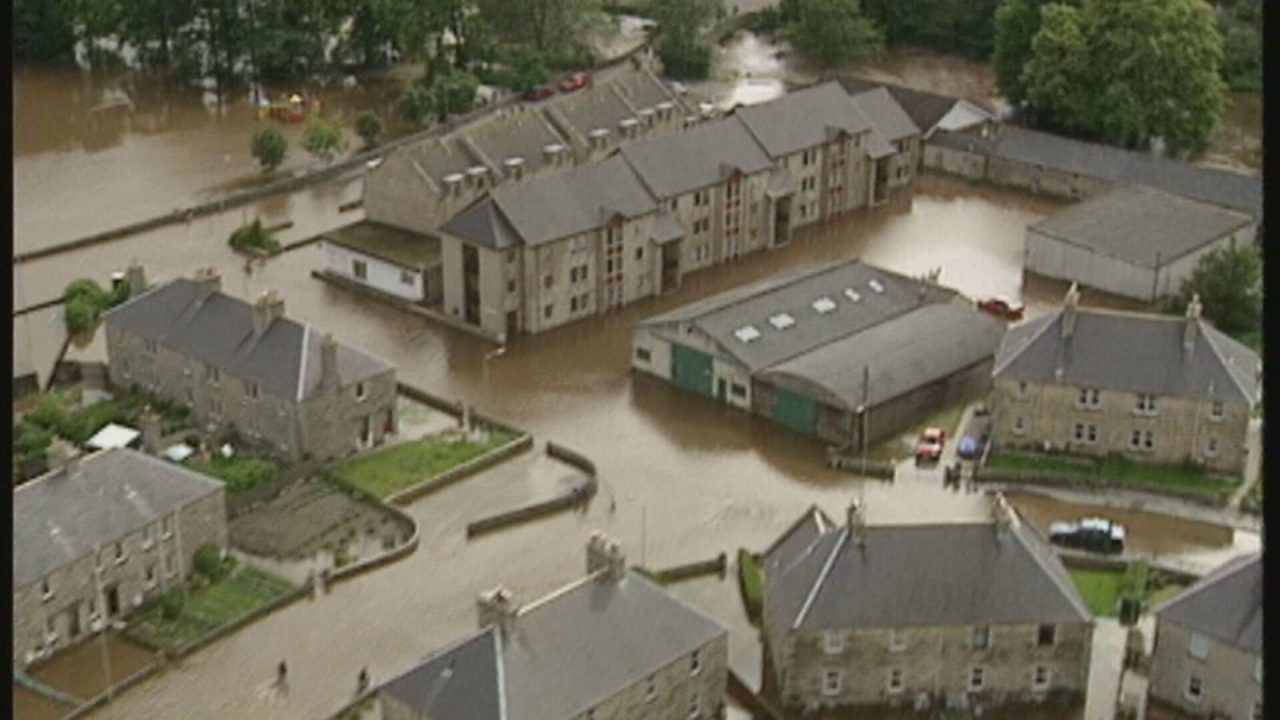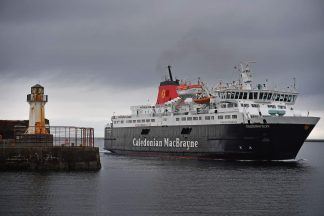Up to 1.5m UK properties face an increased risk of flooding by 2080 because of rising seas triggered by melting Arctic sea ice, MPs have found.
Greenhouse gases have already warmed the atmosphere enough to lock in between 17.5mm-52.4mm of global sea level rise by 2100 and any further warming will only increase that, scientists told the Environmental Audit Committee’s sub-committee on polar research.
As Arctic sea ice melts, the rate at which it disappears will speed up as more of the sun’s energy is absorbed by the dark ocean rather than being reflected back into space off the white ice – a process known as the albedo effect.
Sea level rise will erode British coasts and threaten homes, with the Thames barrier needing an upgrade to deal with higher tides.
Governments later in the century will likely have to decide where they will build defences and where they will allow flooding to happen.
The low-lying village of Fairbourne in Wales may become submerged in future, with the local council saying it will become uninhabitable by mid-century.
It wants residents to leave so it can be dismantled and turned back into marshland.
Temperatures in the Arctic are warming four times faster than the global average and the melting ice is devastating the wildlife and people who depend on it for their livelihoods.
These changes may also affect the UK’s weather, though scientists said more research is needed to know for sure.
Melting ice threatens to destabilise a current in the North Atlantic known as the Atlantic meridional overturning circulation (Amoc), which provides the UK with its mild winters and stops it freezing over as happens at similar latitudes in Canada or Russia.
If enough freshwater from Greenland’s glaciers flows into the Atlantic, changing the salinity and temperature of the ocean, it could cause the Amoc to collapse and plunge the UK into a much colder climate while accelerating warmth in the tropics, with some scientists predicting this may happen next century.
Chair of the polar research sub-committee, James Gray, said: “For too long the effects of a changing Arctic have been out of sight, out of mind.
“Before melting glaciers and ice sheets contribute to widespread flooding and irreversible weather patterns in the UK, we must throw our full toolbox at understanding changes in the Arctic better.
“We must prioritise and put more funding behind scientific and multi-disciplinary research.
“At the moment, Arctic science is concentrated on its summer, with the Arctic winter – which could tell us an enormous amount about the weather – being under-studied.
“More collaboration is needed among UK universities to avoid repetition of scientific endeavours seeking out the same information, and with our international partners to learn and share resource.”
The committee said the UK Government should treat the Arctic with more prominence, send an ice-breaker research ship there and appoint a polar envoy.
Responsibility lies across several departments that should meet at least once a quarter, which the ministers have yet to do once, the committee said.
They also heard that political tensions with other countries are inhibiting scientific research, with Western researchers effectively locked out of half the Arctic region since Russia’s invasion of Ukraine.
MPs are concerned that the competition for oil, gas and minerals in the polar north, as well as a military build-up by both Russia and Nato, is diverting attention away from climate change.
They also identified an increased opportunity to use shipping routes in the newly created sea lanes, allowing minerals to be mined and transported out to be used in green technology, but stressed that this should not come at the expense of indigenous people.
Mr Gray said: “Russia has been frozen out of Western Arctic science following its invasion of Ukraine. The Arctic Council, built with the purpose of boosting collaboration with Arctic nations, is becoming less influential and much of its important work has stalled.
“Our loss of access to Russian data is concerning, and 50% of the Arctic is now inaccessible to Western scientists. We must look into alternative international fora to champion and collaborate on Arctic research.
“Whitehall has not been paying enough attention to the Arctic. Four ministers jotted around different departments with no oversight on Arctic policy is a missed opportunity.
“The fact the ministers are yet to meet indicates a lack of enthusiasm on Arctic matters at the heart of Government: they must meet quarterly given the drastic changes we are witnessing in our changing Arctic.”
Follow STV News on WhatsApp
Scan the QR code on your mobile device for all the latest news from around the country


 STV News
STV News






















